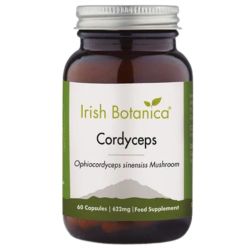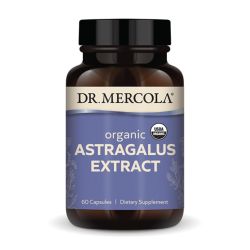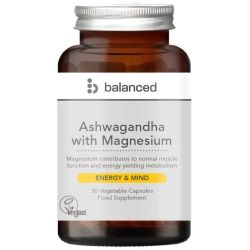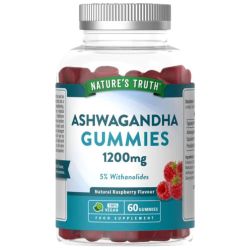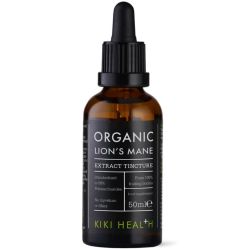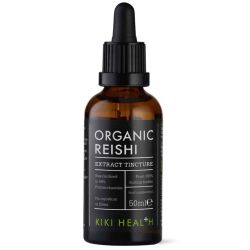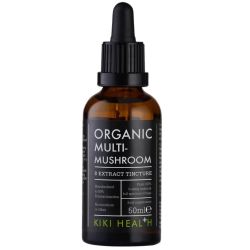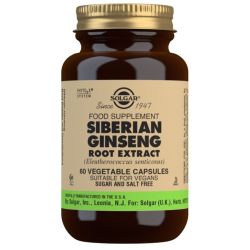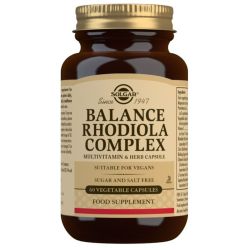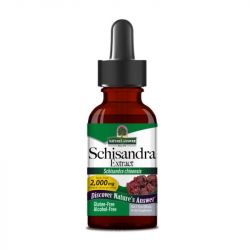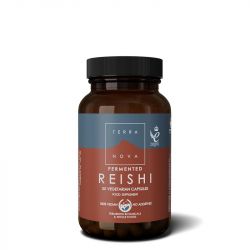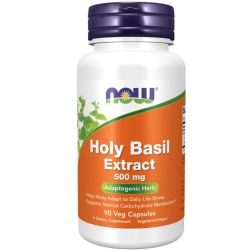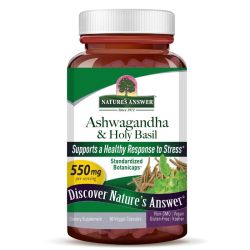Adaptogen Supplements
Adaptogens are natural herbs and mushrooms that help the body manage stress, restore balance, and support long-term resilience. These supplements are gaining popularity in the UK as more people look for holistic ways to improve energy, focus, hormonal balance and recovery from burnout.
This range includes powerful adaptogenic herbs like ashwagandha, rhodiola, maca, holy basil, and functional mushrooms like reishi, lion’s mane, and cordyceps.
- Solgar Siberian Ginseng Root Extract Vegicaps 60Special Price £15.38 Regular Price £20.50Out of stock
- Living Nutrition Organic Fermented Cordyceps Capsules 60Special Price £23.99 Regular Price £29.99Out of stock
- Nature's Answer Ashwagandha & Holy Basil Vegicaps 60Special Price £26.99 Regular Price £29.99Out of stock
FAQs: Adaptogens
What are adaptogens and how do they work in the body?
Adaptogens are plant-based compounds—mainly herbs and fungi—that help the body adapt to physical, emotional, and environmental stress. They interact with the hypothalamic-pituitary-adrenal (HPA) axis and the sympathetic nervous system to balance cortisol, support adrenal function, and promote homeostasis. Rather than stimulating or sedating, they help normalise body processes depending on what the body needs.
Which adaptogen is best for stress and burnout recovery?
Adaptogens like ashwagandha, rhodiola, and reishi are traditionally used to support the body during periods of stress and fatigue. They may help with energy, focus, and relaxation, but individual responses vary. Speak to a healthcare professional if you're dealing with burnout or ongoing stress.
How long do adaptogens take to work?
This depends on the individual and the adaptogen used. Some, like rhodiola, may begin to improve focus and energy within a few days. Others, like ashwagandha or reishi, may take 2–4 weeks of consistent use to show noticeable benefits. Consistency and timing (e.g. taking in the morning or before bed) are important for best results.
Do adaptogens help with hormone balance, especially for women?
Yes. Adaptogens like maca root and ashwagandha are often used to support hormonal regulation, especially during PMS, perimenopause, and menopause. They may help reduce symptoms like mood swings, fatigue, and low libido by supporting the endocrine system.
What’s the difference between adaptogens and stimulants like caffeine?
Adaptogens don’t work like caffeine or other quick stimulants. Instead of giving you a sudden boost, they support your body’s natural energy regulation, helping to reduce crashes and improve long-term resilience. While caffeine can temporarily mask fatigue, adaptogens may help address the underlying stress or adrenal imbalance causing it.
Can adaptogens improve sleep and reduce nighttime anxiety?
Certain adaptogens, especially ashwagandha and reishi—are known to calm the nervous system, lower cortisol levels in the evening, and support deeper, more restful sleep. They don’t act as sedatives but help regulate stress hormones and promote relaxation, which can be especially helpful for people who feel anxious or overstimulated at night.
Do adaptogens interfere with medications or health conditions?
Some adaptogens may interact with medications, especially those that affect blood pressure, thyroid function, blood sugar, or immune activity. For example, ashwagandha may interact with thyroid medication, and rhodiola may influence antidepressant use. Always check with a healthcare professional if you're on medication or managing a long-term condition.

